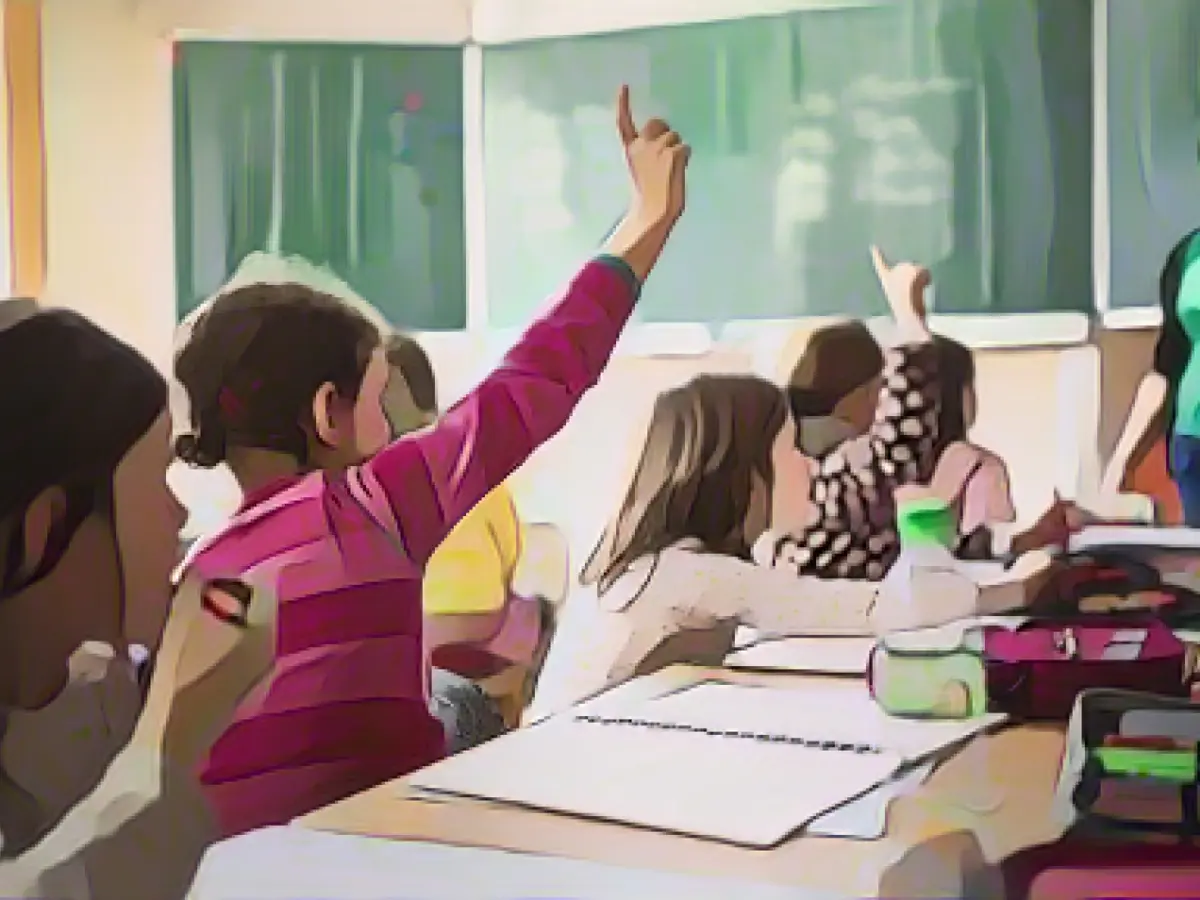Pisa study - Sit down, six! Our education system is broken - and needs to be reformed
The results of the new Pisa study show a negative trend: German pupils have become weaker in mathematics, reading skills and science since the previous test in 2018. In math and reading, they have lost around a whole year of learning, meaning that the 15-year-olds tested are on a par with 14-year-olds.
The new results are the lowest values that have been measured for Germany since the PISA study began in 2000. The discrepancy in performance in mathematics between pupils from privileged and disadvantaged families is particularly striking.
Pupils in Germany only mediocre?
With these results, Germany is in the middle of the OECD field, only slightly above in the natural sciences. It is of little consolation that pupils in many countries around the world have deteriorated. Yes, PISA winners such as Finland and the Netherlands are also getting worse - but they are still better than Germany.
At the top of the list are primarily East Asian education systems such as Singapore, Macau, Hong Kong, Korea and Japan. Estonia and Canada are far ahead in the natural sciences, while the reading skills of pupils in Ireland are outstanding. So we don't need to introduce an Asian school system to improve.
The poor results are by no means surprising. All school studies in recent years have shown a similar trend for Germany. What is particularly worrying is that girls and boys from socially disadvantaged homes or children with a migration background are not keeping up with the material. This has also been known in Germany for a long time, but the coronavirus and the long weeks of homeschooling have further intensified these trends. Too little has been done about it.
A major update is overdue
The German school system needs a radical update, that has finally become clear. There is a lack of money, the equipment with computers and the handling of digitalization are still not up to date. But above all, there is a lack of specialists, partly because many teachers are retiring. In order to attract new people to the job, to inspire young people who are about to choose a career to become teachers, it would first have to be massively upgraded. Being a teacher has to sound attractive. To achieve this, the course of study should be fundamentally reformed. Prospective teachers need to know how they can support pupils in a more targeted way. Because the student body has changed, it has become more heterogeneous. Unfortunately, teacher training has not.
We also need to finally understand that education starts before school, in nursery. Just a few days ago, a new study by the Bertelsmann Foundation showed that there is a lack of specialist staff there too. What's more, socially disadvantaged children in particular do not get a place.
Germany can do better!
What can be done? Sunday speeches won't help now. Chancellor Scholz should make schools a top priority. There needs to be a push for education in Germany, which will only work if the "traffic light" coalition takes on more money for education - even if nobody wants to hear that at a time when the budget is not even in place. Nevertheless, the money would be well invested in education, as it would pay off for all of us in the long term if well-qualified specialists enter the labor market.
In its coalition agreement, the coalition government adopted the so-called Startchancen program, which aims to provide better support for around 4,000 schools in socially difficult areas across Germany. 60 percent of these are elementary school. But valuable time will pass before the program can start in the 2024/2025 school year. Time that children will not be able to make up.
Germany can actually do better, as it proved after the Pisa shock in 2001. Just remember: when the results of the school performance study were published for the first time ever and we had to realize that our self-image in terms of education was better than the international comparison showed, numerous education initiatives were launched. With success: pupils in Germany improved in reading, mathematics and science. From study to study, at least until 2012. So it works. You just have to want to.
Read also:
- The PISA study reveals a concerning trend in Germany, with pupils showing weaker performance in mathematics, reading, and natural science compared to the 2018 test.
- The discrepancy in mathematics performance between privileged and disadvantaged students in Germany is particularly noticeable, as highlighted in the PISA study.
- In order to address the teacher shortage, a fundamental reform of the teacher training program is necessary to equip educators with the skills to support a more diverse student body effectively.
- The Startchancen program, adopted in the coalition agreement, aims to provide better support for around 4,000 schools in socially challenging areas across Germany, targeting 60% of these schools as elementary schools.
- Germany can improve its education system and catch up to top-performing nations, as demonstrated in the past, by making education a top priority and investing in education reform and initiatives.
Source: www.stern.de







